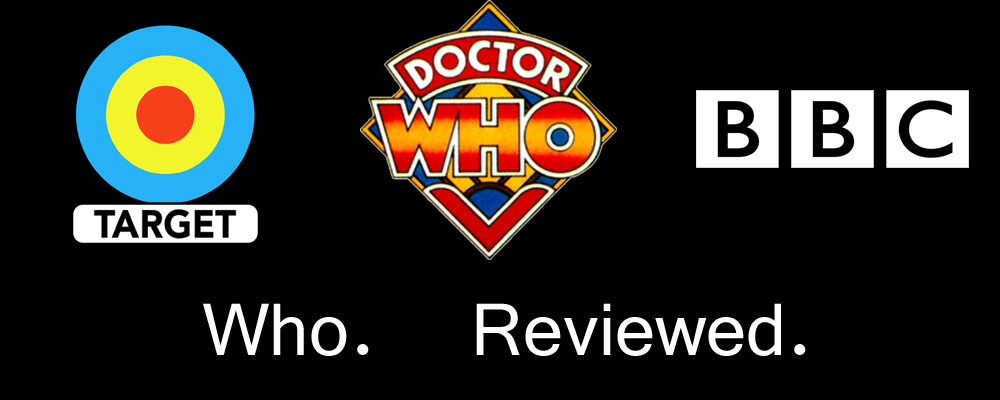Since receiving my first Doctor Who novelization in 1986 (the much-misunderstood The Gunfighters), I’ve managed to collect a rather surprising amount of Who-related books; fiction and non-fiction, real-world production information and plain, simple fantasy. I don’t read them much anymore (this is the first Who book reviewed on BwB), but occasionally delve into one to really get a feel for my teen years again.
And City at World’s End is almost certainly the worst Doctor Who novel I’ve read, and I’ve read the ultimate testament to fanboy continuity-geekdom, War of the Daleks. City, by Christopher Bulis, was one of the earlier BBC Books attempts to carry on the Doctor’s adventures while the TV show was on hiatus between 1989-2005.
Who took on a life of it’s own after the ’89 cancellation, as books describing “Missing” or “New” adventures of the Time Lord were published by various enterprises. Many of these (cough, War of the Daleks, cough) came straight from fanboys and were astonishing in their ability to turn one line of dialogue from a single episode broadcast in 1973 into entire 279-page novels. (For some reason, novelizations of the original serials – two 23-minute long episodes or ten - were almost always fit into 127-page books; for the New/Missing adventures it’s 279).

It’s this kind of backstory which explains the Who dichotomy. Because of it’s wonderfully simply and unique format, Who-fiction can be purely derivative stuff, completely original – and is often both. Take for example the 2007 broadcast stories “Human Nature” and “Family of the Blood”. These stories were written by Paul Cornell, who adapted his 1995 novel “Human Nature” to suit the reimagined series’ head honcho Russell T. Davies’ story arc allowing the Doctor’s nemesis to be re-born.
It turns out that the Master appeared in a story (Utopia) very much like this one – a group of humans building a rocket to escape their world’s apocalypse, all the time under threat by hostile aliens. I hope RTD wasn’t aware of this book when plotting Utopia, because the series deserves much better. City at World’s End is an appalling piece of fiction – even if, in embryo, the idea has merit.
City is remarkably poorly put together. It’s as transparent as a glass of water and features several (alleged) subplots which are both boring, useless – thus, utterly flawed – before they all converge nowhere. Typical Whoniverse “religion is blind and corrupt” themes (cf. 1984’s Planet of Fire) aren’t so much hinted at as shouted from the mountain tops. There’s nothing wrong with a simple plot, as long as it’s paced well – a great example of this is the early Bond novels.
Pity is, we’ve covered most of our review space and haven’t even gotten to the words yet. The “adventure” is headlined by the original TARDIS crew of the Doctor (as portrayed by William Hartnell), his granddaughter Susan as well as English schoolteachers Ian and Barbara. Hartnell, whose mannerisms should make writing for him a relative doddle (as compared to the real, as opposed to remembered, Tom Baker years) is characterized less as a gentleman traveler and speaks words like a bored telephone sales operative.
Bulis throws about verbs like a ham-fisted bun vendor and completely fails to apply any sense of urgency to what we’re told is a desperate situation. He even trots out that “give every clue it’s a main character, but don’t refer to them by name until the very end of the chapter” hackneyed crap. The prelude (and first half of the book) were of such stunning shoddiness that I only continued reading so as to see a) how bad it could get and b) how much I could pan it in a review.
Much of these flaws can be repaired, however, given a good editing job. Unfortunately, being able to poke so many holes is almost every aspect of the book means the editor (at that time one of Stephen Cole or Justin Richards) must have been on a horrible deadline, as the book is laughably incoherent. By now, the series (of books) was obviously being run by the fan-boys on Adamsian-style deadlines.
In short, the book doesn’t deserve even half of the column inches I’ve devoted to it. Sorry.
In a word: Unedited.
Rating: 1.



